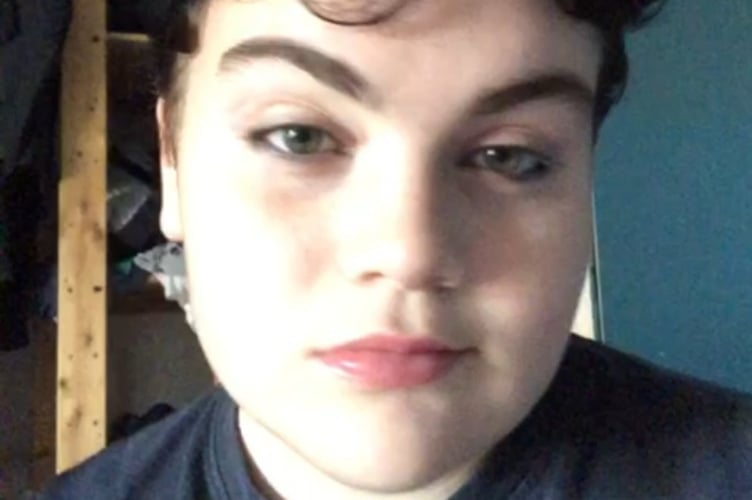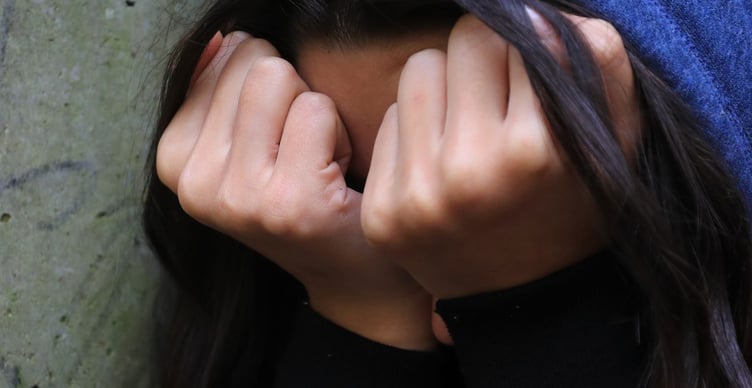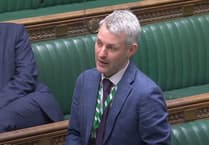An “underestimation” of suicide risk and significant mental health ‘failings’ contributed to the death of a vulnerable teenager, a Senior Coroner has found.
Locket Williams, described by their family as “a lovely person with a huge character”, was just 15 years old when they tragically killed themselves in September 2021.
Senior Coroner Richard Travers concluded that there were a number of key failures by Surrey and Borders Partnership (SABP) NHS Foundation Trust’s Children and Adolescent Mental Health Services (CAMHS) which contributed to the death of the vulnerable teenager, who goes by they/them pronouns. A three-week inquest concluded recently.
The coroner’s inquest underscores the findings of data released in autumn that reports that young women in Surrey are more than five times as likely to be hospitalised for self-harm as their male counterparts.
The Conservative Government published the National Suicide Prevention Strategy then that launched more than 100 new initiatives to reduce suicide rates within two-and-a-half years, and included a particular focus on young people.

The Government pledged to implement a new national alert system – where people can notify relevant authorities about individuals, suicide methods, or risks – and improve school mental health services so half of pupils can access support by March 2025.
That’s cold comfort for Locket’s family.
Locket’s older sister, Emily, said: “Hearing the coroner recognize what we have believed for three long years—that failures by CAMHS contributed to Locket’s death and ultimately meant Locket lost all hope—is heartbreaking.
“We’re thankful for the Coroner’s respect for Locket’s identity, which was so important to them, and we sincerely hope this process will help prevent more tragic deaths like Locket’s in the future.”
Described by their family as “vibrant” with a “massive heart”, Locket “brought colour to everything they participated in” their family said.
They had a long history of mental health difficulties, resulting in self-harming behaviours and three previous suicide attempts throughout within seven months of 2021. Evidence heard at the inquest highlighted “illogical conclusions” that Locket was deemed “low risk” by clinicians, despite their ongoing suicidal ideation and three suicide attempts in close succession, the family’s lawyers said.
Coroner Travers found that Locket’s high risk of suicide was “underestimated” by clinicians, as there was an “insufficient account” of Locket’s long-running risk, which meant Locket did not receive the treatment they needed.
Commenting on the Coroner’s findings, the family’s solicitor, Elle Gauld from Simpson Millar’s public law team, said: “Given Locket’s three suicide attempts and deteriorating mental health, CAMHS’ approach repeatedly defied logic and palpable evidence of suicidality, bypassing the patient’s express wishes and placing an unrealistic burden on a family already in crisis. Treatment was not commenced in a timely manner” Long waiting lists for Cognitive Behavioural Therapy (CBT) and a shortage of therapists meant that, although clinicians all agreed CBT was necessary, Locket remained at home.
Without access to the required support and treatment, their mental health continued to deteriorate, the lawyers for the family said. Coroner Travers said there was a ‘failure’ to assess the likelihood Locket could be kept safe while waiting eight months for Cognitive Behavioural Therapy (‘CBT’), a treatment she was ready and willing to engage in.
Failures in communication between social services and CAMHS were also identified, leading to crucial information being missed in Locket’s assessment and care. CAMHS failed to attend Core Groups meetings held by social services to protect Locket, as a vulnerable child.
Locket was passed from service to service, with no continuous care from the same clinicians or who was responsible for Locket’s care, lawyers said.
Mental health charity YoungMinds said the statists “deeply concerning” and said that yopung people’s mental health must be prioritised toa ddress the root causes.
The latest data from the Office for Health Improvement and Disparities shows there were around 930 hospitalisations of young women and girls aged between 10 and 24 in Surrey for self-harm in 2021-22.
It meant there were 880 admissions per 100,000 adolescent women in the area that year. However, this fell to 169 admissions per 100,000 adolescent men, meaning a young woman was around 5.2 times as likely to be hospitalised for self-harm.
This followed the trend across England, where there were 35,000 hospitalisations of young women and girls due to self-harm in 2021-22.This was more than four times as many admissions as for young men and boys.
Professor Peter Fonagy OBE, chief executive of the Anna Freud mental health charity, said: “Pressure to look a certain way, achieve academically and comparison on social media all contribute to setting the bar much higher for girls and young women within society.
“By recognising these types of drivers of anxiety and distress in our children and young people earlier we can help to develop and improve intervention programmes.”
YoungMinds said access to early support is vital for young people, but that many who self-harm struggle to reach out, facing “high thresholds and long waiting lists before receiving any treatment which can have devastating consequences”.
Tom Madders, director of communications and campaigns at the charity, said: “To turn the tide on this crisis, the Government must start prioritising young people’s mental health by setting out a clear plan to drive down prevalence and address the root causes. This includes providing early support in communities, increasing help in schools, and reducing waiting times.”
Speaking of the family’s loss, Locket’s mother, Hazel Williams, said: “We hope the lessons learned from their death highlight the urgent need for change and prevent future tragedies. We are grateful for the thoroughness of this inquest and the potential for positive changes in managing mental health services for young people.”
SABP has 56 days to respond to the senior coroner’s findings. Coroner Tavers has asked the NHS Trust to report whether there is now a system in place to ensure that young people referred to CAMHS are seen and treated promptly, and that clinicians are acting in accordance with the Trust’s guidelines.
A Surrey and Borders Partnership NHS Foundation Trust spokesperson said: “We are extremely saddened by the tragic death of Locket Williams and our deepest sympathies go to their family and friends. “We are carefully reflecting on the Coroner’s findings and the questions we have been asked and will respond within the given timeframe. (With files from PA data services and the Local Democracy Reporting service)





Comments
This article has no comments yet. Be the first to leave a comment.